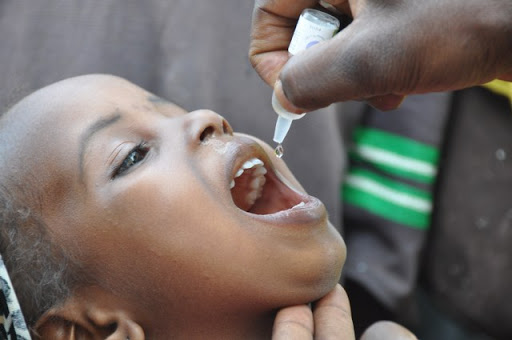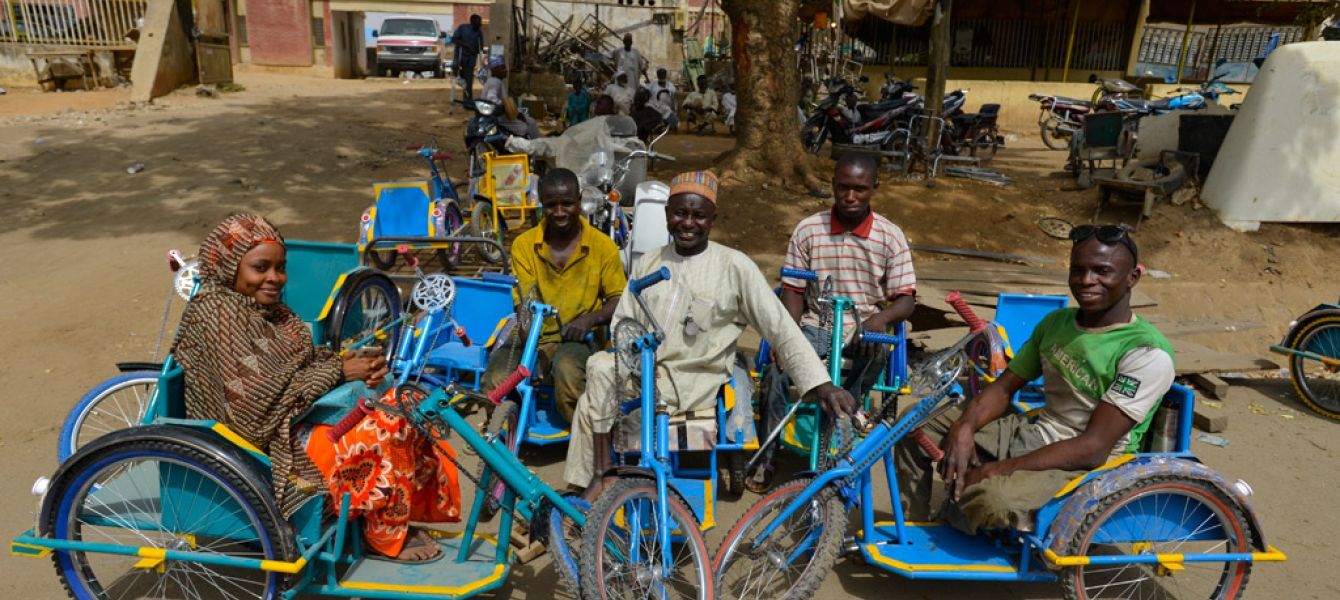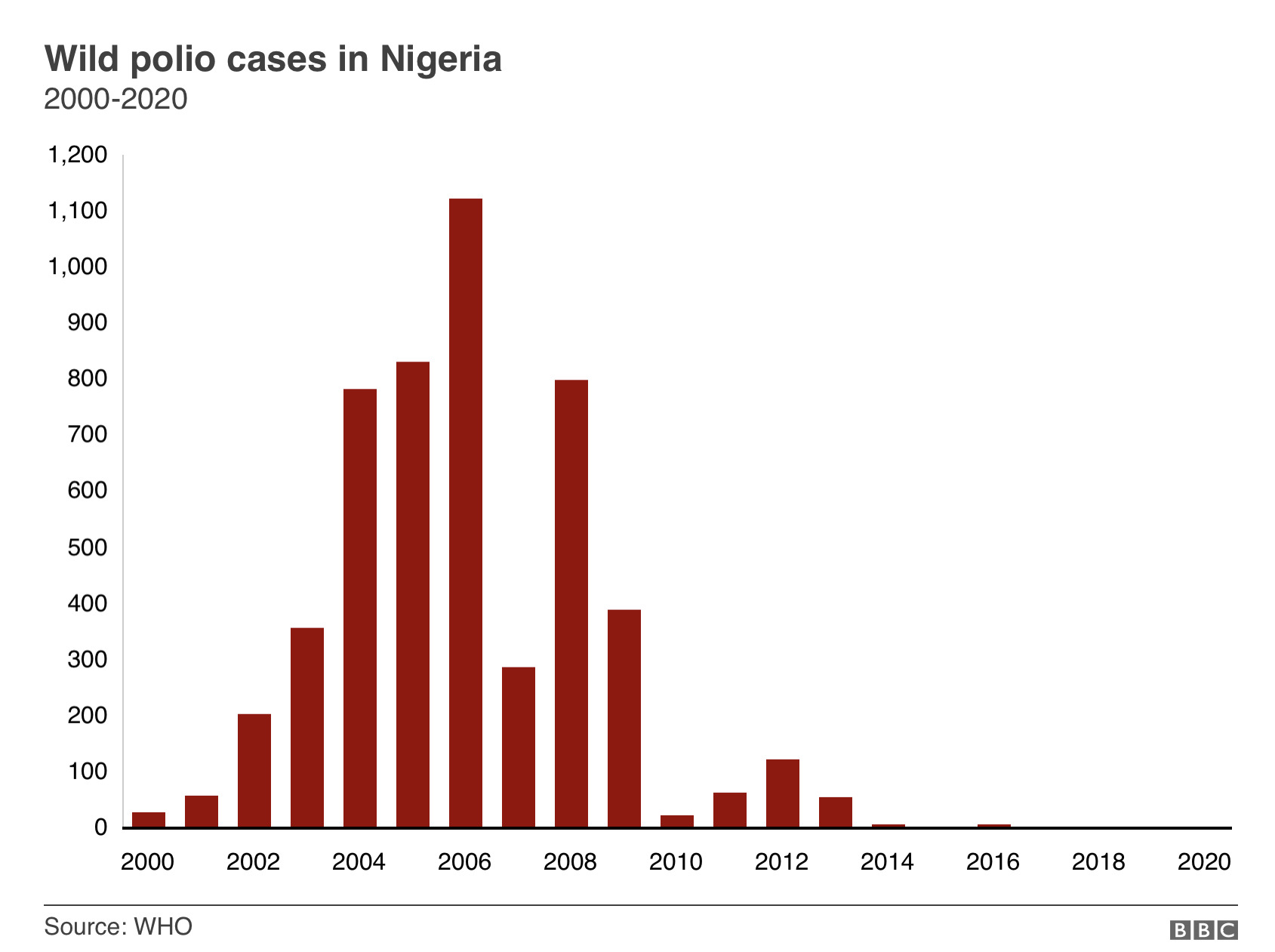
- Inspiring People -
- 7mins -
- 62 views
World Health Organization declares Africa free of wild polio
The last remnants of wild poliovirus in Africa have been eradicated thanks to a massive vaccination drive in northern Nigeria, where Boko Haram jihadists had opposed immunisation.
Africa polio-free now disease no longer endemic in Nigeria
The World Health Organization (WHO) announced on Tuesday 25 August 2020 that wild poliovirus is no longer endemic in Nigeria, leaving the devastating disease endemic in only two countries and bringing the world one major step closer to achieving this goal of ending polio for good. “The outstanding commitment and efforts that got Nigeria off the endemic list must continue, to keep Africa polio-free,” said WHO Director-General Dr. Margaret Chan. “We must now support the efforts in Pakistan and Afghanistan so they soon join the polio-free world.”

Nigeria accounted for more than half of all polio cases worldwide as recently as 2012
Since 1988, the incidence of polio has been reduced by more than 99%, according to The World Health Organization (WHO). At the time, more than 350,000 children were paralysed every year, in more than 125 endemic countries. Today, two countries remain which have never stopped endemic transmission of polio: Pakistan and Afghanistan, where there have been in 2015, 41 cases reported (32 in Pakistan, 9 in Afghanistan).
In its announcement yesterday, WHO said that Nigeria has made remarkable progress against polio, but continued vigilance is needed to protect these gains and ensure that polio does not return.
Nigeria has not reported a case of wild poliovirus since 24 July 2014, and all laboratory data has confirmed that a full 12 months have passed without any new cases.
Immunisation and surveillance activities must continue to rapidly detect a potential re-introduction or re-emergence of the virus, the agency said, explaining that only after three years have passed without a case of wild poliovirus on the African continent will an official ”certification” of polio eradication be conducted at the regional level in Africa.
The Global Polio Eradication Initiative (GPEI), the public-private partnership leading the effort to eradicate polio on the planet, called the development a ”historic achievement” in global health.
As recently as 2012, Nigeria accounted for more than half of all polio cases worldwide, according to WHO.
“More than 200,000 volunteers across the country repeatedly immunised more than 45 million children under the age of 5, to ensure that no child would suffer from this paralysing disease,” the agency said.
Source: UN.org

WHO and UNICEF congratulate Nigeria on ending wild poliovirus
Both WHO and UNICEF yesterday congratulated Nigeria on being declared free of the wild poliovirus but stressed that achieving this milestone is not the end of the job – all children under five years must continue to be vaccinated against vaccine-preventable diseases.
This is critical to significantly reduce avoidable mortality in Nigerian children under 5 years old, keep polio permanently out of Nigeria, and ensure better health and well being for future generations.
The UN agencies also congratulated fellow Global Polio Eradication Initiative (GPEI) partners in Nigeria who helped reach this achievement: Rotary International; the US Centers for Disease Control (CDC); Bill and Melinda Gates Foundation and the Global Alliance for Vaccines and Immunisation (GAVI); as well as Nigerian traditional and religious leaders and volunteer community mobilisers – the latter, the foot soldiers who fought to free the children of Nigeria from the wild poliovirus.
Dr. Walter Kazadi Mulumbo, WHO Nigeria Country Representative, said, “WHO rejoices with the people and government of Nigeria and acknowledges that wild polio-free certification is undoubtedly the greatest public health triumph in the annals of Nigeria and indeed Africa that will bequeath to posterity lessons learnt and best practices for addressing future public health interventions.”
Both UN agencies expressed strong appreciation for the role played by all stakeholders, especially the commitment and support of the Nigerian government at all levels, development partners, donors, traditional and community leaders, health workers and caregivers.
“This milestone is a clarion call to urgently rededicate resources to stopping the transmission of all types of poliovirus, strengthening routine immunisation to sustain the gains achieved – especially in high risk areas and traditional polio sanctuaries – and maintaining high quality surveillance,’’ said Dr. Mulumbo.
“It is a momentous achievement that calls for celebration,” said Peter Hawkins, UNICEF Representative in Nigeria. “This historic achievement not only signifies the end of the wild poliovirus across the entire African continent, but is also a significant springboard towards attaining global polio eradication.”
“UNICEF joins Nigeria in celebrating this milestone – and congratulating Nigeria’s children, especially – but we must remember that the job is not over. All caregivers must continue to vaccinate their children against vaccine-preventable childhood diseases, including polio. Religious and community leaders, as champions of wild poliovirus eradication, should continue to mobilise caregivers to vaccinate their children for all preventable diseases. Children need their help now more than ever,’’ said Mr. Hawkins.
“Not only is polio vaccination still crucial, all routine vaccinations are critical to children’s survival. We must all work together to strengthen routine immunisation services and ensure that all children under five receive all vaccines, including the polio vaccine.”
“This is not the time for Nigeria to take its foot off the accelerator. This is the time for Nigeria to strengthen its primary health care system, and give routine immunisation a vital boost.”
UNICEF and WHO pledge to continue to support Nigeria to strengthen its primary healthcare system under the Primary Health Care Under One Roof (PHCUR) policy initiated by the Federal Government, including the goal to have at least one functional primary healthcare centre (PHC) in every ward in Nigeria.
Nigeria attained wild polio-free status after meeting all the criteria for certification, which include three years of non-detection of any wild poliovirus case in the country.
Before the certification, Nigeria, Afghanistan and Pakistan were the only wild polio endemic countries globally.
Source: afro.who.int

Now future generations of African children can live free of wild polio
The independent Africa Regional Certification Commission (ARCC) for Polio Eradication officially declared on Tuesday 25 August 2020 that the World Health Organization (WHO) African Region is free of wild poliovirus.
This marks the eradication of the second virus from the face of the continent since smallpox 40 years ago.
“Today is a historic day for Africa. The African Regional Certification Commission for Polio eradication (ARCC) is pleased to announce that the Region has successfully met the certification criteria for wild polio eradication, with no cases of the wild poliovirus reported in the Region for four years,” said Professor Rose Gana Fomban Leke, ARCC Chairperson.
The ARCC’s decision comes after an exhaustive, decades-long process of documentation and analysis of polio surveillance, immunisation and laboratory capacity of the region’s 47 member states, which included conducting field verification visits to each country.
In 1996, African Heads of State committed to eradicate polio during the Thirty-Second Ordinary Session of the Organization of African Unity in Yaoundé, Cameroon. At the time, polio was paralyzing an estimated 75,000 children, annually, on the African continent.
In the same year, Nelson Mandela with the support of Rotary International jumpstarted Africa’s commitment to polio eradication with the launch of the Kick Polio Out of Africa campaign. Mandela’s call mobilized African nations and leaders across the continent to step up their efforts to reach every child with polio vaccine.
The last case of wild poliovirus in the region was detected in 2016 in Nigeria. Since 1996, polio eradication efforts have prevented up to 1.8 million children from crippling life-long paralysis and saved approximately 180,000 lives.
“This is a momentous milestone for Africa. Now future generations of African children can live free of wild polio,” said Dr Matshidiso Moeti, WHO Regional Director for Africa. “This historic achievement was only possible thanks to the leadership and commitment of governments, communities, global polio eradication partners and philanthropists. I pay special tribute to the frontline health workers and vaccinators, some of whom lost their lives, for this noble cause.”
“However, we must stay vigilant and keep up vaccination rates to avert a resurgence of the wild poliovirus and address the continued threat of the vaccine-derived polio,” said Dr Moeti.
While the eradication of wild poliovirus from the WHO African Region is a major achievement, 16 countries in the region are currently experiencing cVDPV2 outbreaks, which can occur in under-immunized communities.
“Africa has demonstrated that despite weak health systems, significant logistical and operational challenges across the continent, African countries have collaborated very effectively in eradicating wild poliovirus,” said Dr Pascal Mkanda, Coordinator of WHO Polio Eradication Programme in the African Region.
“With the innovations and expertise that the polio programme has established, I am confident that we can sustain the gains, post-certification, and eliminate cVDPV2,” added Dr Mkanda.
“The expertise gained from polio eradication will continue to assist the African region in tackling COVID-19 and other health problems that have plagued the continent for so many years and ultimately move the continent toward universal health coverage. This will be the true legacy of polio eradication in Africa,” said Dr Moeti.
Thanks to the dedication of the Global Polio Eradication Initiative, polio cases have reduced by 99.9% since 1988, bringing the world closer than ever before to ending polio.
The initiative is a public-private global partnership comprising national governments; WHO; Rotary International; the United States Centers for Disease Control and Prevention; UNICEF; the Bill & Melinda Gates Foundation; Gavi, the Vaccine Alliance; and a broad range of long-term supporters.
Source: afro.who.int

